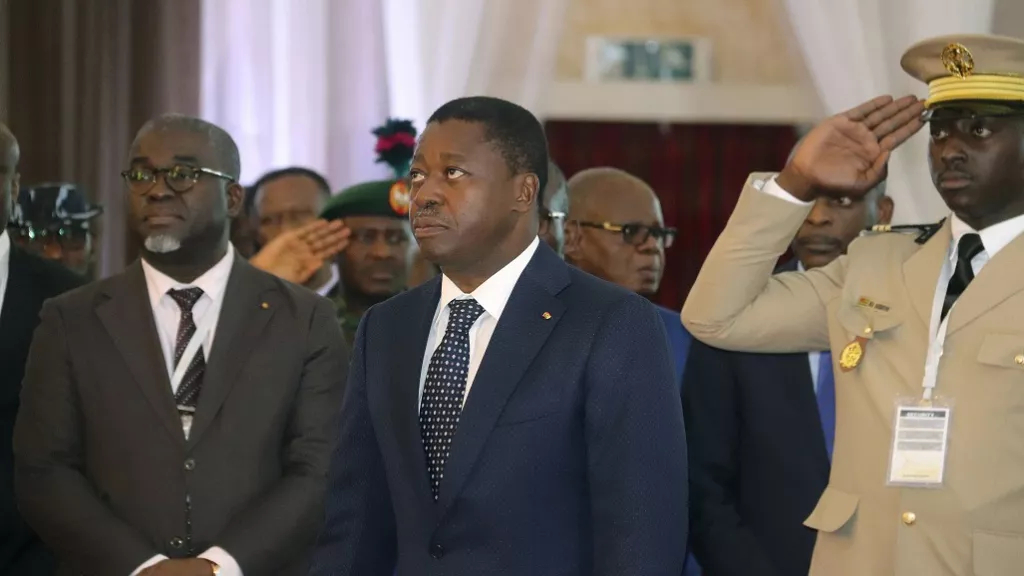Africa
Faure Gnassingbé’s Party Secures Victory in Togo’s Senatorial Election

President Faure Gnassingbé’s party has emerged victorious in Togo’s senatorial elections, strengthening its political influence in the country.
The Union for the Republic, under the leadership of President Faure Gnassingbé, won 34 of the 41 seats in the recent election designed to transition to a parliamentary system.
In Togo, the ruling party secured 34 out of the 41 Senate seats, according to an announcement by the electoral commission on Sunday, February 16. This followed a vote that concluded a contentious constitutional reform process criticized by opposition groups.
“The head of the electoral commission, Dago Yabré, announced that they will promptly submit these provisional results to the Constitutional Court, as it is the sole authority authorized to issue the final results,” after revealing them in Lomé.
The formation of the Senate marks the final phase prior to implementing the new Constitution, which was enacted in May by President Faure Gnassingbé. He has been in power since 2005, taking over from his father who governed for almost thirty-eight years.
It eliminates the direct election of the head of state by universal suffrage and introduces a parliamentary system. The President’s role will be ceremonial, while real power will reside with a Prime Minister who must lead the majority party in the National Assembly.
The prime minister in question is Faure Gnassingbé. His party, the Union for the Republic (Unir), achieved a significant victory in the April legislative elections by securing 108 out of 113 seats and he is anticipated to be appointed as prime minister once the Senate has been established.
The president of the Republic will be elected by both deputies and senators.
The opposition and civil society have criticized the reform, claiming it enables Faure Gnassingbé to stay in power indefinitely. Previously, the Constitution would have restricted him to serving a final term ending in 2025.
The presidential camp asserts that this constitutional amendment improves representation.
The Senate will be composed of 61 members in total, with the prime minister appointing 20 of them.
A total of 1,527 municipal councilors and 179 regional councilors were scheduled to elect the senators on Saturday.
Several key opposition parties, such as the National Alliance for Change, the Democratic Forces for the Republic, and a coalition known as Dynamic for the Majority of the People (comprising political parties and civil society groups), chose to boycott the vote.
The Alliance of Democrats for Integral Development, the main opposition party, took part in the election but managed to win only a single seat.
Six more seats were allocated to smaller parties.
Foreign media representatives were denied accreditation to cover these elections, just as they were during the legislative and regional elections in April.
